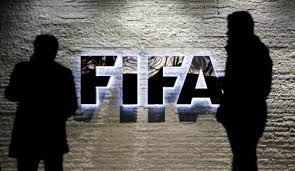Suddenly, strangely, it has all gone quiet. After days and weeks of eager anticipation about whether Gianni Infantino is being investigated for breaking ethics rules, Fifa continues to leave us all on tenterhooks.
If Swiss media reports and reliable sources are to be believed, some kind of statement should have been released by the ethics committee last week. Then it became Tuesday, then the end of this week. Even those close to the process were convinced something was imminent. Yet still nothing. What can be deduced from this?
Trying to separate the facts from the rumours is a tricky process with cards being clasped so tightly to chests and precious little official information emanating from the various parties. But Insideworldfootball has learned of a possible split within the ethics committee that would explain why it has taken so long to simply tell us, yes or no, whether a formal investigation is being or has been opened and give us an indication of whether the committee is quite as independent as one might have hoped.
Those with knowledge of how the ethics process works are incredulous as to why, if 18 interviews really have already taken place and Infantino himself has also been questioned, there has been such a lengthy delay in making an official announcement. “I have never known this kind of chain of events ever before,” said one knowledgeable insider. “It’s totally unusual.”
One possible explanation is that members of the ethics committee simply can’t come to a unanimous collective conclusion, hence the continual postponements of a ruling. Insideworldfootball has learned that although Djimrabaye Bourngar of Chad is leading the inquiry as deputy chairman of the investigatory chamber, the Infantino case has become so thorny and complex that there has been widespread co-ordination among committee members, including Guam’s Roberto Torres.
It is understood that while Torres and the two chamber heads, Cornel Borbely (who cannot be part of any inquiry because he is a Swiss national like Infantino but nevertheless has a view) and chief judge Hans-Joachim Eckert favour formal proceedings, Bourngar does not share that view. This, according to reliable sources, is why an announcement in the middle of this week was suddenly blocked at the last moment.
What, you might ask, is the sticking point? The answer is understood be the status of the now-infamous flights Infantino took to the 2018 and 2022 World Cup hosts Russia and Qatar and to Rome to visit the Pope. The question investigators are grappling with is whether any of these flights breach article 20 of the ethics code which covers gifts, and whether therefore Infantino is guilty of conflict of interest.
Sources close to the ethics committee make the point that Infantino’s case is far less clearcut than those of Michel Platini and Sepp Blatter and that it is essential, in order for the committee to retain its credibility, that any sanction must stick rather than risk being overturned on appeal.
But there are possibly other narratives at play here, going all the way back to Mexico in May when Infantino rail-roaded through that controversial change in the statutes which, in one fell swoop (however much FIFA denies it), removed the independence of supposedly neutral bodies like the ethics committee and gave Infantino’s ruling Council the power to hire and fire members. Could it actually be that what lies behind the reluctance of ethics officials to formally open proceedings against Infantino is fear of losing their jobs? It may sound far-fetched but it is a question being asked many serious observers.
In the meantime, the longer the debate rumbles on, the more the media will jump to conclusions – rightly or wrongly. Infantino’s next high-profile appearance will be at Wembley this weekend to join in the celebrations to mark the 50th anniversary of England’s World Cup triumph. Will it be his last before a temporary suspension, or is he about to get off Scot-free? It seems pretty clear that a preliminary investigation into his alleged misconduct during his first few months in charge has taken place already. Otherwise how can one explain why the head of FIFA’s travel department, Severin Podolak, and the chief of the general secretary’s office, Christoph Schmidt, were both fired after allegedly becoming whistleblowers by passing files to ethics chiefs?
The question increasingly seems to be whether FIFA’s supposedly independent investigators now have the courage to go further. If they do, they run the risk of their evidence being blown apart and the wrath of Infantino’s legal team coming down on them. If they don’t, they equally risk being accused of protecting both themselves and the president. It’s an unenviable dilemma and, either way, perhaps the toughest ruling they have ever had to make.
Andrew Warshaw is chief correspondent of Insideworldfootball and was formerly Sports Editor of the European. Contact him at moc.l1714151873labto1714151873ofdlr1714151873owedi1714151873sni@w1714151873ahsra1714151873w.wer1714151873dna1714151873

